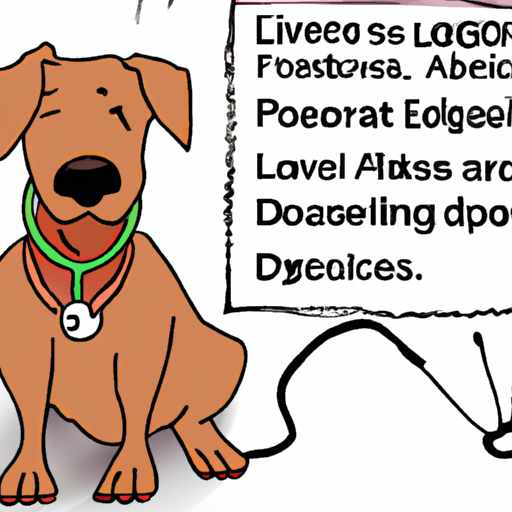Liver disease is a critical health issue that can affect dogs of all breeds and ages. Understanding the causes can help you, as a caregiver, prevent the onset of this debilitating disease and ensure the health of your furry friend. This article will delve into the root causes of liver disease in dogs and provide some handy tips to help you navigate through this challenging health issue.
1. Causes of Liver Disease in Dogs
Liver disease in dogs can be attributed to a variety of causes. Here are some of the primary reasons:
- Ingestion of Toxins: Certain household products, plants, and foods can be toxic to dogs and lead to liver disease.
- Infections: Bacterial, viral, and fungal infections can infect the liver and cause disease.
- Genetic Factors: Certain breeds are predisposed to liver disease due to genetic factors.
- Age: Older dogs are at a higher risk of developing liver disease.
- Other Health Conditions: Conditions like diabetes, heart disease, and pancreatitis can also contribute to liver disease in dogs.
2. Symptoms to Look Out For
As a caregiver, you should be vigilant about any changes in your dog’s behaviour or health. The following symptoms may indicate liver disease:
- Loss of appetite
- Weight loss
- Jaundice (yellowing of the eyes or skin)
- Increased thirst and urination
- Vomiting or diarrhea
- Changes in behaviour (such as lethargy or aggression)
3. Diagnosis and Treatment of Liver Disease
When it comes to diagnosing liver disease in dogs, vets usually rely on a combination of blood tests, ultrasounds, and liver biopsies. The treatment will depend on the underlying cause of the disease and may involve medication, dietary changes, or in severe cases, surgery.
| Diagnostic Test | Purpose |
|---|---|
| Blood Tests | To check for elevated liver enzymes |
| Ultrasound | To visualize the liver and check for abnormalities |
| Liver Biopsy | To confirm the diagnosis and identify the cause |
4. Prevention of Liver Disease
Prevention is always better than cure. Here’s how you can protect your dog from liver disease:
- Keep your home free of toxic substances that your dog could ingest.
- Regular vet check-ups can help detect any health issues early.
- Feed your dog a balanced diet and ensure they get regular exercise.
- Watch for any changes in your dog’s behavior or health.
5. Frequently Asked Questions
Q: Can liver disease in dogs be cured?
A: This depends on the cause and severity of the disease. In some cases, liver disease can be managed with medication and dietary changes.
Q: What foods should I avoid giving my dog to prevent liver disease?
A: Foods high in fat, chocolate, onions, garlic, and alcohol can be harmful to dogs and should be avoided.
Q: How often should I take my dog for a check-up?
A: It’s recommended to take your dog for a vet check-up at least once a year. However, if your dog is older or has other health conditions, more frequent visits may be necessary.
Remember, your dog’s health lies largely in your hands. Being informed and proactive can make a world of difference.



